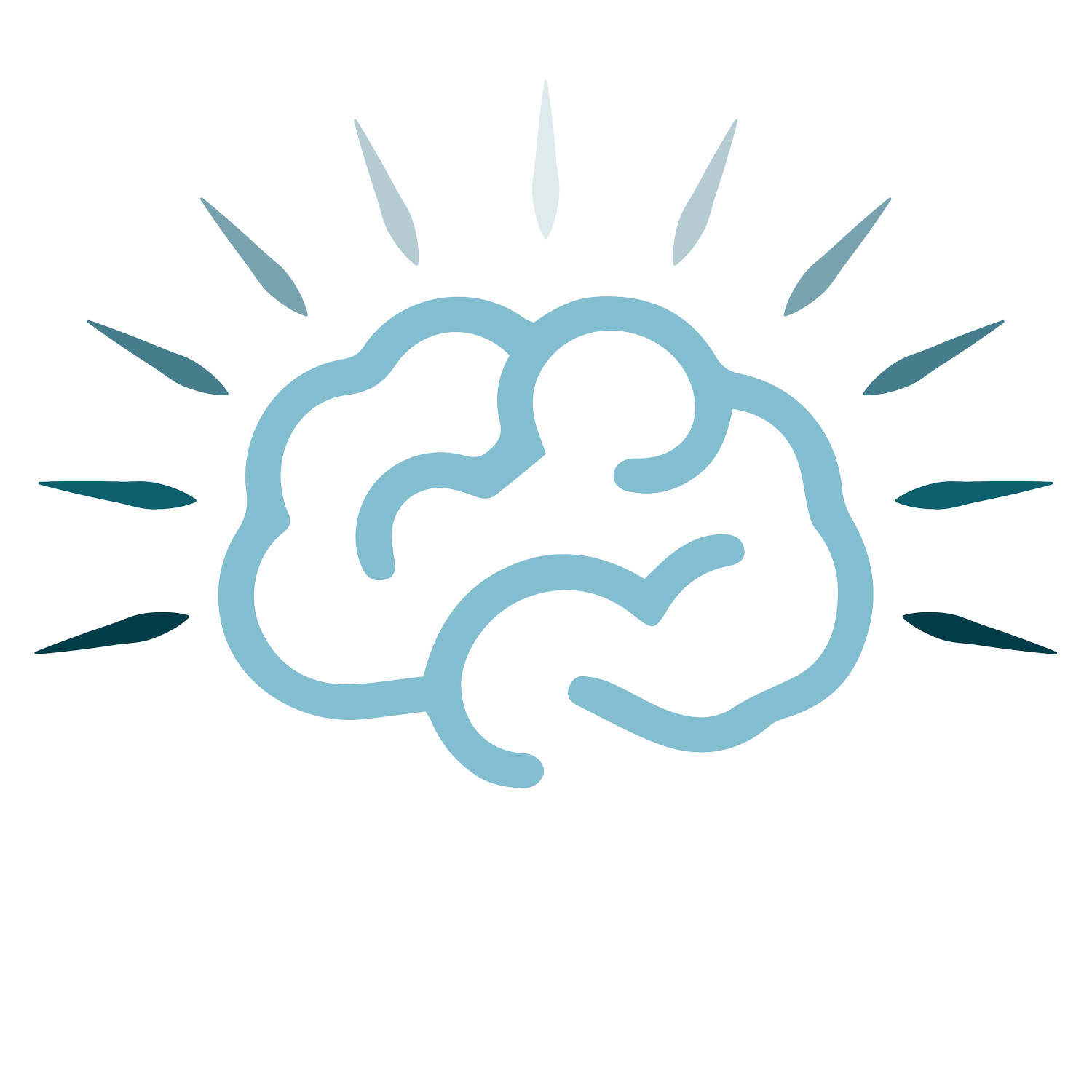
Frequently Asked Questions
Helpful information is provided below to make the process easier to navigate. For any questions, please don’t hesitate to make contact.
-
What is a neuropsychological assessment?
A detailed evaluation of your memory, thinking, and problem-solving skills. It can help identify changes related to injury, illness, or other conditions, and guide recommendations for support or treatment.Why might I need an assessment?
Assessments are helpful for understanding the reasons behind difficulties such as memory lapses, brain fog, attention problems, or language changes. They can also assist with diagnosis, treatment planning, and tracking recovery.What does a neuropsychological assessment involve?
A neuropsychological assessment provides a comprehensive evaluation of how the brain is functioning. It typically includes:A clinical interview covering medical, psychological, and personal history
Standardised cognitive testing (e.g., memory, attention, language, reasoning, problem-solving, processing speed)
Behavioural or emotional questionnaires
Review of relevant background documents (e.g., imaging, medical reports)
A detailed written report with findings and recommendations
A feedback session to discuss results
What do assessments evaluate?
Assessments are tailored to each person’s needs and may assess areas such as:General intellectual ability (IQ)
Memory and learning
Attention and concentration
Processing speed
Language and communication
Visual-spatial abilities
Executive functioning (planning, flexibility, organisation)
Emotional and behavioural functioning
Adaptive functioning
What conditions can be assessed?
Common referrals include:Traumatic brain injury or concussion
Stroke
Dementia or mild cognitive impairment
Neurological illness (e.g., multiple sclerosis, epilepsy, Parkinson’s disease)
Mental health conditions where thinking may be affected
Developmental or learning differences in adults (e.g., ADHD, Intellectual Disability, Specific Learning Disorder)
-
What is Clinical Neuropsychology?
Clinical Neuropsychology is a specialised area within psychology that focuses on how the brain influences thinking, behaviour, and emotions. Clinical Neuropsychologists are trained to understand how brain-related conditions impact cognitive functioning and daily life.
What Qualifications do Clinical Neuropsychologists have?
Clinical Neuropsychologists are registered psychologists with additional postgraduate qualifications and supervised training in Clinical Neuropsychology.
The pathway typically includes:
A 4-year undergraduate degree in psychology
A postgraduate Masters or Doctorate in Clinical Neuropsychology
Completion of the Clinical Neuropsychology Registrar Program (1–2 years of supervised practice)
They are endorsed by the Psychology Board of Australia and are skilled in brain-based assessment, diagnosis, and treatment planning.
-
Do I need a referral to book?
A referral is not strictly required to access a neuropsychological assessment. However, obtaining a referral is strongly encouraged, as it helps ensure the assessment is clinically useful and supports ongoing care.A referral or supporting documentation can:
Clarify the reason for the assessment
Provide relevant medical or psychological history
Highlight specific questions or concerns to be addressed
Support coordination with other healthcare providers involved in ongoing care
For NDIS participants, information from a coordinator or plan manager (such as goals or previous reports) can also help tailor the assessment to meet plan requirements.
Who can refer me?
Referrals are commonly made by:GPs
Specialists (neurologists, psychiatrists, geriatricians)
Allied health professionals
NDIS support coordinators
I am a referrer. How can I refer?
Phone: 0491 792 847
What are the types of referrals seen at the Cognitive Wellness Clinic?
Common referral questions include:
Is there evidence of cognitive impairment or decline?
What is the nature and severity of the impairment?
Are changes due to neurological injury or illness?
How might cognitive changes impact function or independence?
Are there any services not currently offered by Cognitive Wellness Clinic?
Assessments for children (16 years and younger)
Medico-legal referrals
-
How much does an assessment cost?
Fees depend on the type and length of assessment. Please see our [Fees & Payment page].Can I claim a rebate from Medicare?
At present, Medicare does not provide rebates for neuropsychological assessments.Can private health insurance or NDIS cover the costs?
Some private health insurers may provide a rebate. You will need to check with your provider.
NDIS participants may be able to claim assessments under their plan (depending on their funding type).
Why do I need to pay a deposit?
A deposit confirms your booking and helps us secure time for the lengthy assessment and report-writing process. -
How long does an assessment take?
Most assessments take between 3 to 5 hours, depending on the complexity of the referral question and individual needs. This may occur across one or two sessions, with breaks as needed to minimise fatigue.Following the assessment, additional time is allocated for reviewing documents, scoring, interpretation, report writing, and the feedback session.
How do I prepare for my assessment?
Get a good night’s sleep
Take medication as usual (unless advised otherwise)
Bring glasses/hearing aids if you use them
Bring relevant medical records or reports
Eat before you come, as sessions can be lengthy
Bring snacks as sessions can be lengthy and breaks are encouraged
Can I bring someone with me?
Family members or support workers are welcome, especially for the interview portion of the assessment. -
Where are you located?
We have two clinic locations - one in Bundall on the Gold Coast and one in Ocean Shores in Northern NSW.Is your clinic accessible?
Yes there is free parking on-site and lift access if required. -
We understand that attending an office may not always be convenient or possible. Depending on suitability, we can travel to conduct assessments across South East Queensland and Northern New South Wales.
Travel-based appointments are subject to room availability, clinical appropriateness, and a travel fee to cover travel time and associated costs. If you are interested in arranging a home or local room-based assessment, please contact us to discuss options and obtain a quote.
-
Do you offer telehealth?
Some components of the assessment can be delivered via telehealth, but most assessments are best completed in person. Please contact us to discuss your situation.
